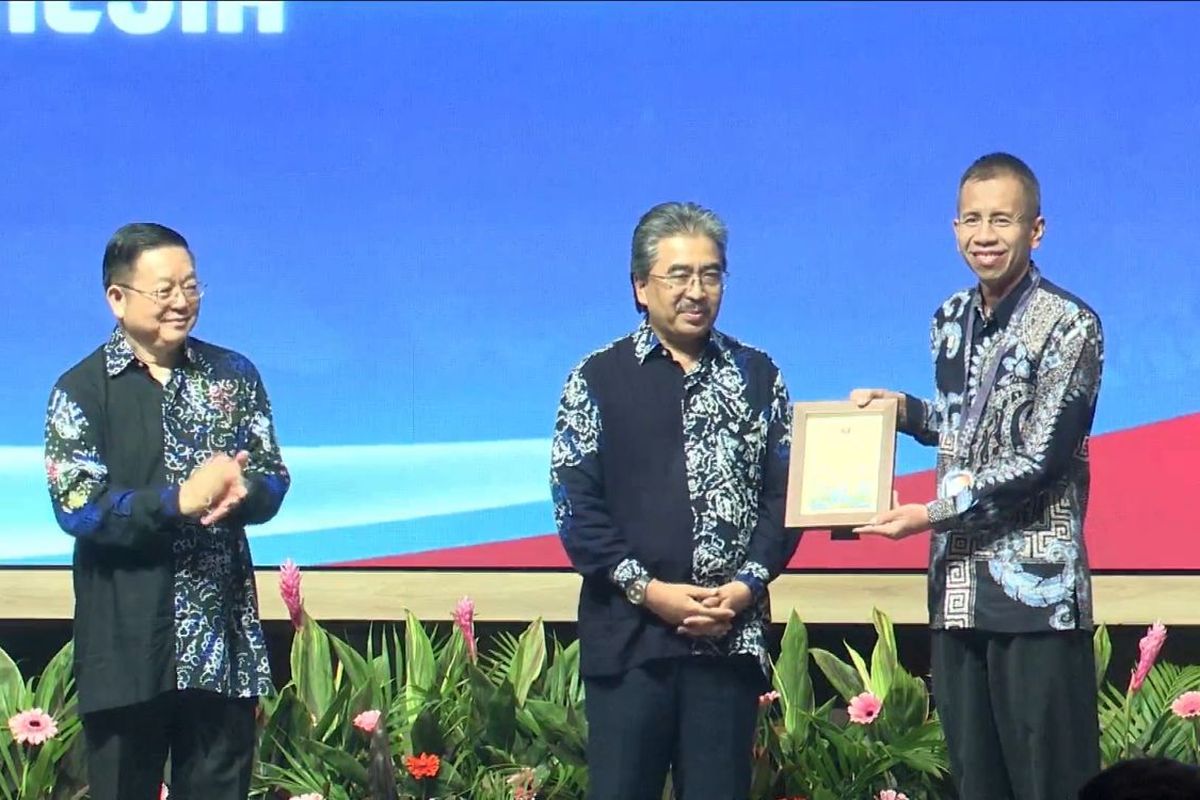Langkawi, Malaysia – The Indonesian regency of Ciamis has once again brought pride to the nation after being named the cleanest small city in Southeast Asia. The recognition came as part of The 6th ASEAN Environmentally Sustainable Cities (ESC) Award and 5th Certificates of Recognition (CoR) 2025, held during the 18th ASEAN Ministerial Meeting on the Environment (AMME) from 2–3 September 2025. Giyatno, Head of the Ciamis Department of Housing, Settlement Areas, and Environment (DPRKPLH), accepted the award on behalf of Regent Herdiat Sunarya.
The Clean Land for Small Cities category recognises municipalities with populations between 20,000 and 750,000 that have excelled in sustainable land cleanliness and waste management. Known as Tatar Galuh, Ciamis stood out among Southeast Asian cities thanks to its consistent, innovative, and community-driven approach to environmental governance. This biennial award is the region’s highest recognition for cities that have succeeded in creating clean, green, and livable environments.
In his remarks, Giyatno highlighted that the achievement was the result of collective effort. “This success proves that effective environmental management begins with good habits and the collaboration of all parties,” he said. ASEAN Secretary-General Kao Kim Hourn also praised Ciamis for its role in promoting inclusive and sustainable urban development, particularly in maintaining clean land and waste systems.
The recognition did not come overnight. Ciamis’ success is rooted in a series of innovative strategies and strong community participation. At the core of these efforts is source-based waste management, where households and communities are encouraged to separate waste at its origin. Community self-help groups and waste banks, such as the Bank Sampah Induk, play a critical role in sorting organic and inorganic waste for recycling and repurposing, significantly reducing the volume sent to final disposal sites.
Another pillar of Ciamis’ approach is community-based sanitation services. Local sanitation teams known as the Pasukan Ungu form the backbone of cleanliness operations, while climate village cadres (ProKlim) and community organisations like Tradisi (Tradisi Daur Ulang Sampah Indonesia) extend waste services deep into rural areas. These efforts ensure that even remote villages benefit from regular waste collection and environmental management.
Ciamis also champions local circular economy models. Organic waste is transformed into compost or used to cultivate maggots for livestock feed, creating new income opportunities while reducing environmental impact. Environmental education through the Adiwiyata school programme further reinforces sustainable practices among the younger generation.
Finally, multi-stakeholder collaboration has been key to Ciamis’ environmental success. Coordination between local government agencies, subdistrict heads, village leaders, environmental NGOs, and development partners ensures that initiatives are inclusive and far-reaching. Regent Herdiat Sunarya expressed his gratitude to all contributors, from composting advocates to community members. “This award belongs to all of us — the result of our collective commitment to keeping Tatar Galuh clean,” he affirmed.
Ciamis’ achievement demonstrates that with vision, innovation, and collaboration, even small cities can set global standards for sustainability. Its success offers a powerful model for other ASEAN municipalities aiming to build cleaner, more resilient, and more sustainable urban environments.







